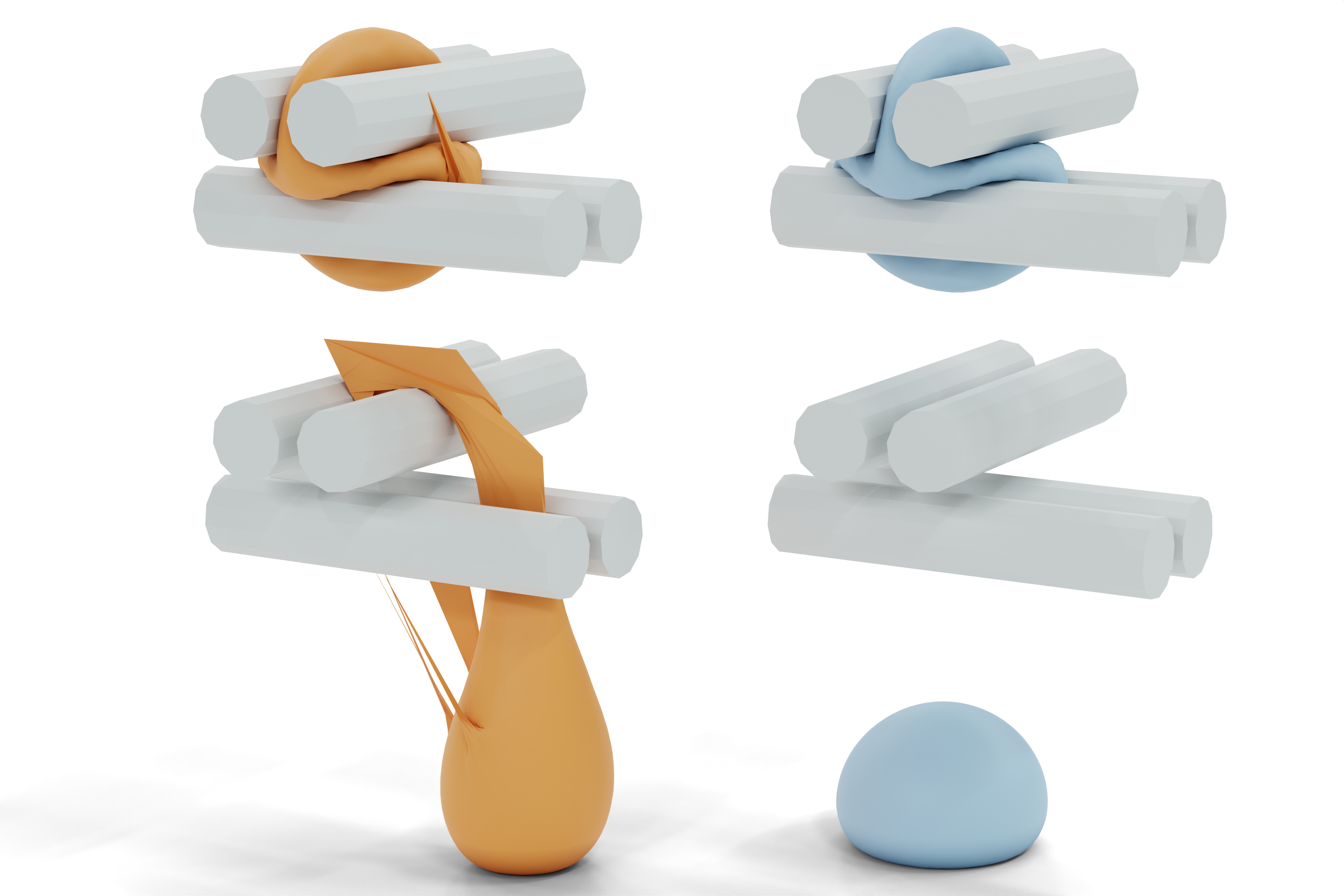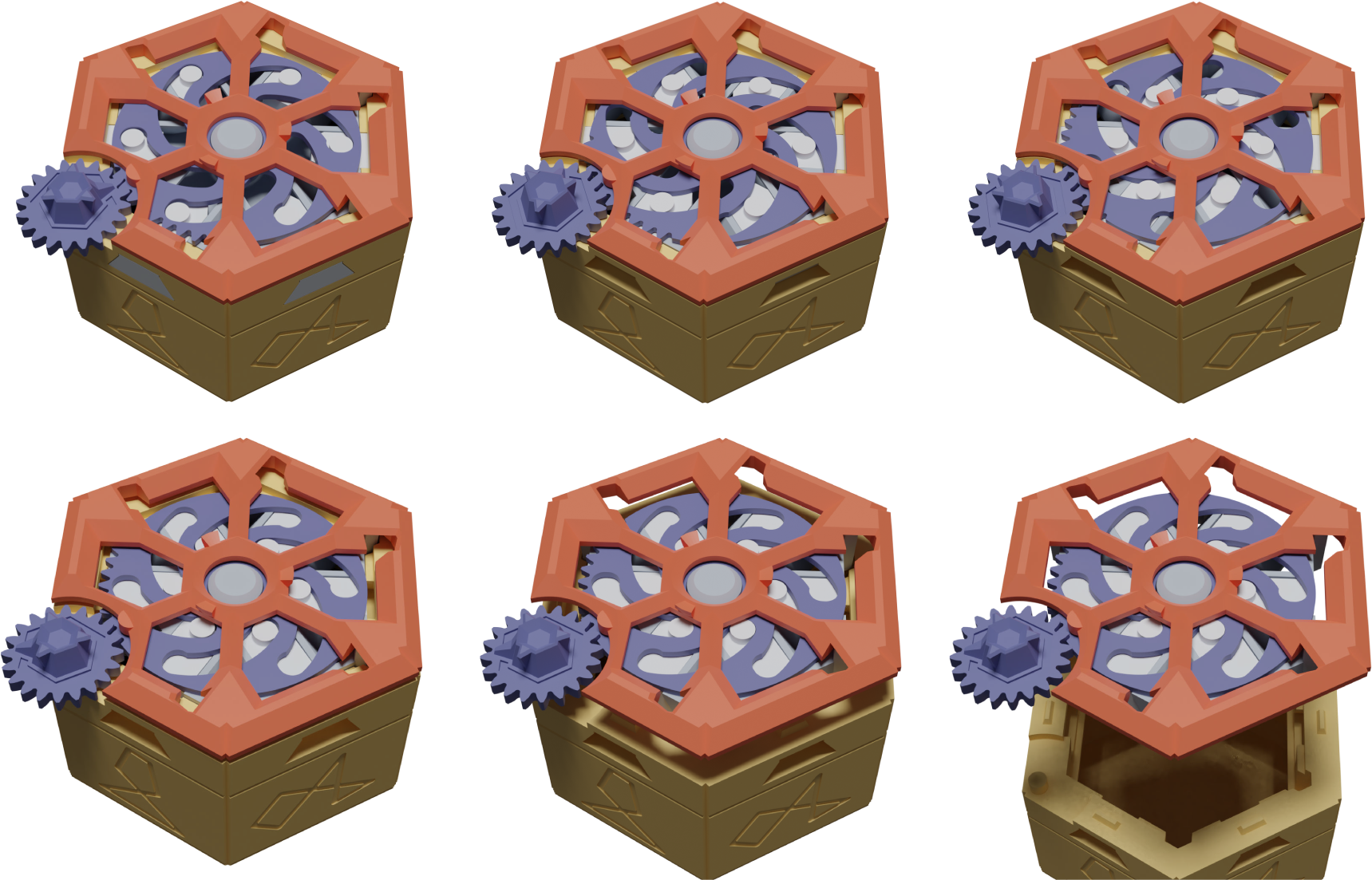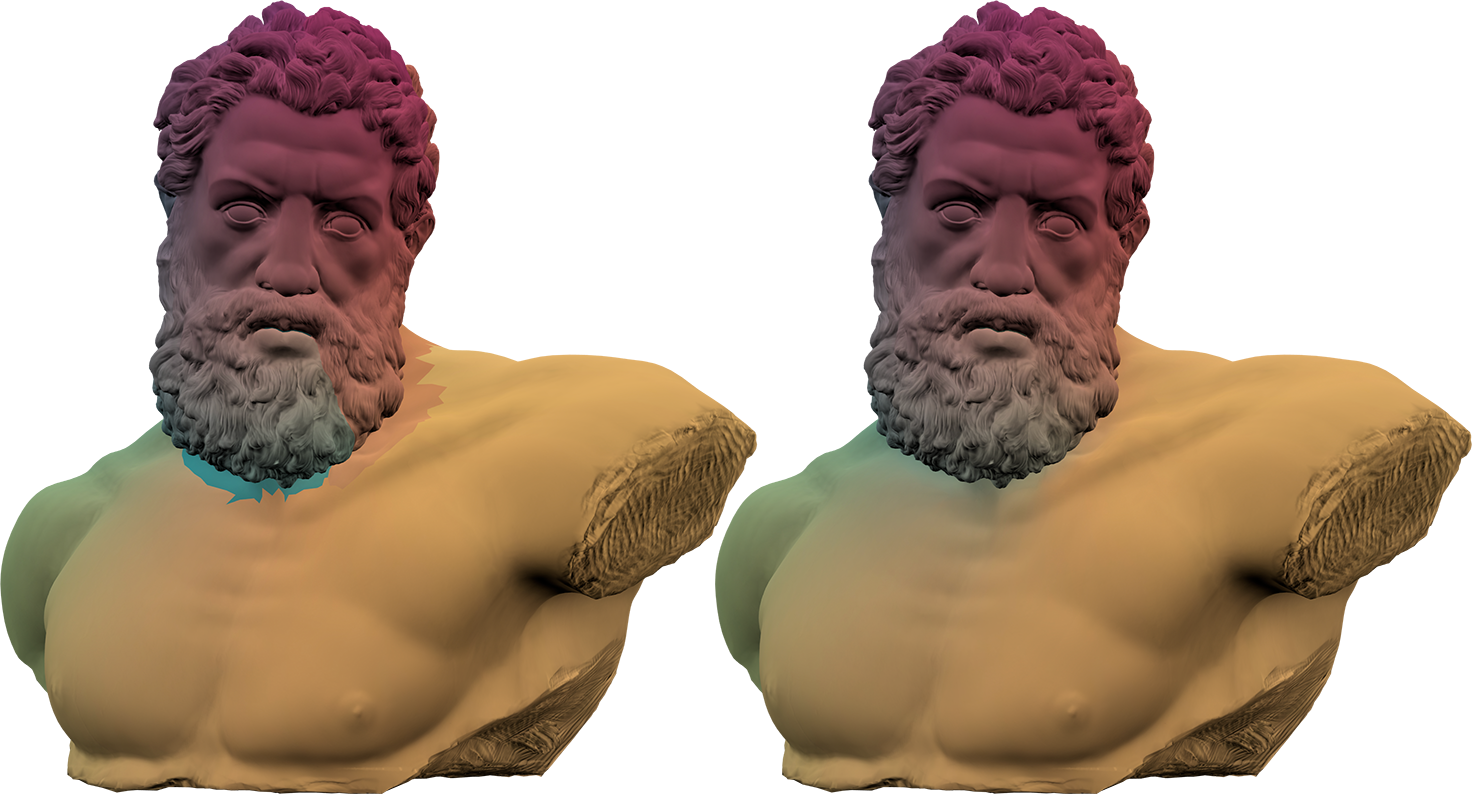Software Statement
In conjunction with each of my publications, I strive to release our implementation as open source software which I then continue to develop and improve. This not only ensures the work I do is reproducible but also democratizes our simulation algorithms. Because of this, we have already seen a significant impact both within computer graphics and in other fields (e.g., robotics and biomechanics).
The flagship codebases of my research are the IPC Toolkit, a re-implementation of the original Incremental Potential Contact's (IPC) algorithmic components to be modular and easy to integrate within existing simulation software, and PolyFEM a complete simulator utilizing IPC (through the IPC Toolkit) to provide a sandbox for future research as well as a ready-to-use application.






















